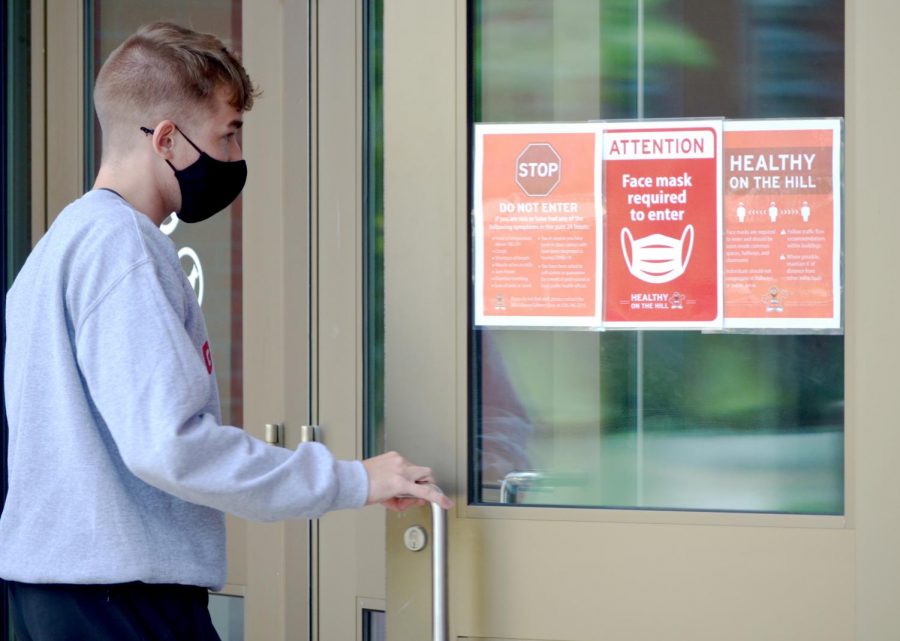Faculty, students concerned, yet hopeful for a normal semester
August 2, 2021
As Warren County reentered the “red zone” last week, many WKU faculty members and students have begun to express concerns about the easily-transmittable delta variant, and what it could mean for the fall semester.
To ease the concerns, the university plans to release guidelines in the next few weeks, according to David Oliver, director of environmental health and safety. WKU bases their guidelines on Centers for Disease Control and Prevention and Governor Andy Beshear’s recommendations.
Many guidelines and recommendations have been rapidly changing. Last Tuesday, the CDC recommended that everyone wear masks in school settings, regardless of vaccination status, to fight the spread of the highly contagious COVID-19 variant.
According to the Kentucky Cabinet for Health and Family Services, Warren County has a current case rate of 34 per 100,000 people, putting it in the critical zone, which starts at 25 cases per 100,000. Kentucky’s average positivity rate is 8.96%.
As of July 31, there are 671 hospitalizations due to COVID-19, according to CHFS.
“The delta is worrisome enough,” Julie Lee, Faculty Senate Chair and nutrition and dietetics instructor said. “The more people delay, or refuse to get vaccinated, the more people will act as incubators to make new versions.”
First posted in March, classes are set for face-to-face instruction and normal class sizes.
“It’s too soon even to talk about whether or not we’re going to have to have spacing,” Lee said. “I don’t think the classes will flip back to online unless it becomes a huge issue again, because unfortunately the accrediting body limits how many online classes we have.”
The delta variant is currently the dominant strain of COVID-19, 82.2% of U.S. cases of the highly-contagious strain as of July 17, as reported by the CDC.
“We don’t have any answers yet, that’s the hard part,” Lee said. “That’s unfortunately the nature of COVID. Even if the delta starts on the downward slope by the time school starts, we don’t know how many other new versions are going to be created.”
Lee pointed out that COVID-19 testing and vaccines are readily available at Graves Gilbert Clinic on campus.
While many students are hoping for a full return to normal this fall, some are worried about staying safe.
Anna Bryson, an education major, will be starting her first year on the Hill this fall. Bryson said she doesn’t know much about the delta variant, but is hopeful for a normal semester.
“I just hope and pray that it won’t come to require masks and vaccines and that life will stay in person,” Bryson said. “As selfish as it sounds, I feel like I already lost my senior year and I for sure lost half of my junior year. I don’t want to see my first year of college turn out the same way.”
Julia Kirchner is a sophomore studying biology who transferred from University of Kentucky to WKU this year.
“The pandemic made it difficult to make friends in a new environment,” Kirchner said. “I want to come to WKU instead to be with people I know.”
While WKU isn’t requiring any students or employees to get the vaccine, it is encouraged.
“I am somewhat concerned about the variant strains, but I think as long as we get vaccinated and wear our masks hopefully classes should be able to continue,” Kirchner said.Digital New Editor Debra Murray can be reached at [email protected]. Follow her on Twitter @debramurrayy















